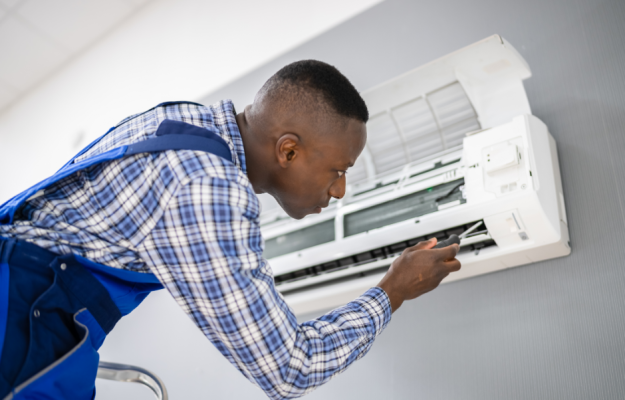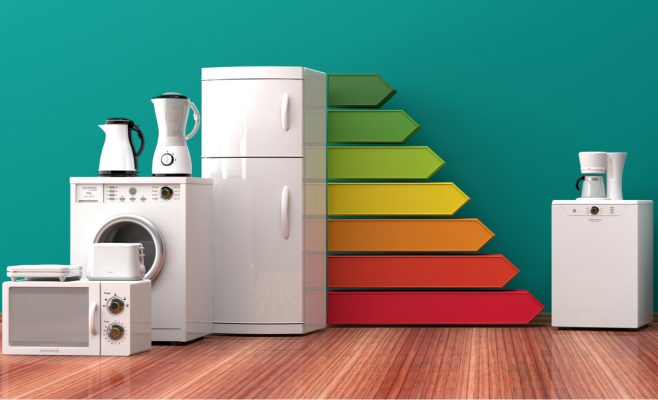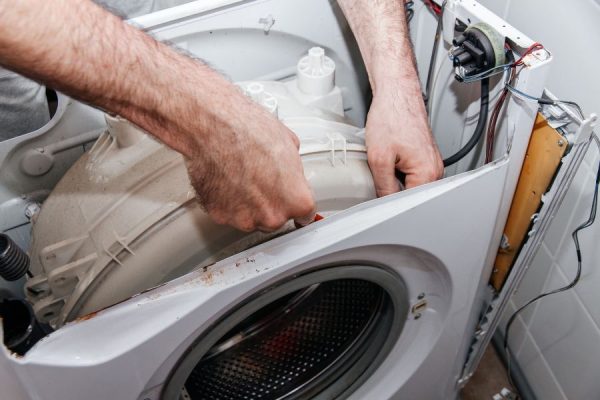In 2024, energy efficiency is more important than ever for homeowners looking to reduce their environmental impact and save on utility costs. Appliances account for a significant portion of household energy consumption, and when they malfunction, it’s not just the repair costs you need to think about—it’s also how those repairs will affect your appliance’s energy efficiency.
When it comes to energy-efficient appliance repairs, there are several factors to consider, from the type of parts used to the skills of the technician. This article will guide you through what you need to know about maintaining energy-efficient appliances, how certain repairs can either enhance or diminish efficiency, and what to ask your repair technician to ensure that your appliances remain energy-friendly after the fix.
The Importance of Maintaining Energy Efficiency
The efficiency of your appliances directly affects both your energy consumption and your monthly bills. An inefficient appliance can consume significantly more energy than necessary, leading to higher costs over time. For instance, a refrigerator with dirty coils or a faulty compressor will use more energy to keep your food cool, while an inefficient dryer might take twice as long to dry clothes.
Energy-efficient appliances are designed to use less power, but over time, normal wear and tear, coupled with poor maintenance, can diminish their energy-saving benefits. Repairing your appliances in a way that preserves or restores their energy efficiency is key to prolonging their lifespan and keeping your energy costs low.

Choose Energy-Efficient Replacement Parts
When repairing an energy-efficient appliance, it’s essential to choose replacement parts that are equally energy-efficient. Not all parts are created equal, and using cheaper or incompatible components can compromise your appliance’s performance.
For example, when replacing the motor in a refrigerator or HVAC system, opt for high-efficiency motors that consume less power. These motors are designed to operate more efficiently, reducing energy consumption without sacrificing performance. Similarly, if your washing machine or dryer requires new parts, look for replacements that are certified for energy efficiency, such as those that carry an ENERGY STAR® rating.
Always check with your repair technician to ensure that the parts being installed are energy-efficient and compatible with your appliance’s design. Using the right parts will help maintain the appliance’s energy-saving capabilities.
The Role of Regular Maintenance in Energy Efficiency
Preventive maintenance is one of the most effective ways to keep your appliances running efficiently and avoid costly repairs in the future. Simple tasks like cleaning filters, coils, and vents can prevent unnecessary wear and tear, allowing your appliances to operate at peak efficiency for longer.
For example, clogged air filters in an HVAC system can restrict airflow, causing the unit to work harder and consume more energy. Regularly cleaning or replacing these filters ensures that your system runs smoothly and efficiently. Similarly, cleaning the lint filter and vent in your dryer not only reduces the risk of fire but also allows the appliance to dry clothes faster, using less energy.
In many cases, regular maintenance tasks are easy to perform yourself, but scheduling an annual professional inspection for more complex systems, such as your HVAC unit or refrigerator, can help catch potential issues before they become costly problems.

Repair vs. Replace: What’s More Energy Efficient?
When an appliance breaks down, homeowners often face the question: should I repair or replace the appliance? While repairing may seem like the more cost-effective option upfront, replacing an older, inefficient appliance with a newer energy-efficient model can sometimes save more money in the long run.
If your appliance is more than 10 to 15 years old and frequently requires repairs, it may be time to consider replacement. Modern appliances are far more energy-efficient than their older counterparts, thanks to advancements in technology and stricter energy regulations. Upgrading to an ENERGY STAR® certified appliance can significantly reduce your energy consumption and lower your utility bills.
Before deciding whether to repair or replace, ask your technician for a thorough energy efficiency assessment. They can help you weigh the costs of continued repairs against the potential savings of a new, more efficient appliance.
Smart Repairs for Smart Appliances
Many modern appliances are equipped with smart technology that allows for remote control and monitoring through apps or home automation systems. While this technology offers convenience and efficiency, it also introduces new challenges when it comes to repairs.
If your smart appliance needs repairs, it’s crucial to choose a technician who is familiar with smart technology. These appliances often have sensors, digital displays, and software that require specific knowledge to repair properly. For instance, if your smart thermostat malfunctions, a technician who understands the smart systems can ensure that your energy-efficient settings remain intact after the repair.
Additionally, many smart appliances provide diagnostic information that can help you identify issues early on. Use these features to monitor your appliance’s performance and catch problems before they lead to larger, more costly repairs.
Ask About Energy-Saving Upgrades During Repairs
When a technician is repairing your appliance, it’s worth asking about possible energy-saving upgrades. Sometimes, minor improvements can make a significant difference in your appliance’s efficiency.
For example, if your refrigerator requires a new compressor, ask whether there are more energy-efficient compressors available for your model. Similarly, if you’re repairing your dishwasher, inquire about low-flow options for water conservation.
Some HVAC systems can also benefit from energy-saving upgrades, such as installing a programmable thermostat or adding more efficient ductwork. These upgrades can improve performance and help you save money on your utility bills over time.
Insulate and Seal Where Necessary
Some appliances, such as refrigerators, freezers, and HVAC units, can lose efficiency due to poor insulation or leaky seals. While insulation may not seem like a crucial factor in appliance efficiency, it can make a significant difference in energy consumption. For example, if your refrigerator’s door seals are worn out, cold air can escape, forcing the appliance to use more energy to maintain the desired temperature.
During repairs, ask your technician to inspect the appliance’s insulation and seals. Replacing damaged seals or adding insulation where necessary can help prevent energy waste. This is especially important for appliances like refrigerators, freezers, and ovens, which rely heavily on insulation to maintain consistent temperatures.

Professional Repairs Can Boost Energy Efficiency
While DIY repairs are tempting, particularly for simple issues, hiring a professional for complex problems is often the best way to ensure your appliance remains energy-efficient. A professional technician has the expertise and tools to diagnose the problem correctly and use the most energy-efficient solutions.
Moreover, professional repairs can extend the life of your appliances and keep them operating at peak efficiency. For example, a certified technician can recalibrate your appliances, such as adjusting the temperature settings on a refrigerator or optimizing the settings on your HVAC system to reduce energy use without sacrificing performance.
The Environmental Impact of Energy-Efficient Repairs
Choosing energy-efficient repairs for your appliances isn’t just about saving money—it’s also about reducing your carbon footprint. Appliances that operate more efficiently use less energy, which helps decrease greenhouse gas emissions and the demand for fossil fuels. Even small changes, such as using energy-efficient parts or scheduling regular maintenance, can contribute to a more sustainable lifestyle.
In 2024, many consumers are prioritizing eco-friendly choices, and making energy-efficient repairs is a key part of that commitment. When you repair your appliances with energy efficiency in mind, you’re not only prolonging their lifespan but also doing your part to protect the environment.
The Long-Term Benefits of Energy-Efficient Appliance Repairs
The benefits of energy-efficient appliance repairs go beyond immediate savings on your energy bills. Over time, these repairs can lead to significant cost reductions and a longer lifespan for your appliances. Well-maintained, energy-efficient appliances also help you avoid the inconvenience of frequent breakdowns and costly repairs.
In addition to financial savings, energy-efficient appliances increase the value of your home. If you plan to sell your property, potential buyers may be attracted to energy-saving features, which can make your home more marketable.
By focusing on energy efficiency when repairing your appliances, you’re investing in a more comfortable, cost-effective, and eco-friendly future.

Please read more articles, this is the content you need:
The Importance of Witness Testimonies in US Accident Cases
Witness testimonies play a crucial role in US accident cases. They provide an objective account [...]
Jul
The Role of Certified Technicians in HVAC Repairs
Heating, ventilation, and air conditioning (HVAC) systems play a crucial role in maintaining comfortable [...]
Sep
How to Fix Your Broken Tablet: DIY vs. Professional Repairs
Tablets have become essential gadgets for both personal and professional use, offering the convenience of [...]
Sep
Appliance Repair vs. Replacement: Which is More Cost-Effective?
Household appliances are an essential part of modern life, from refrigerators and dishwashers to washing [...]
Sep